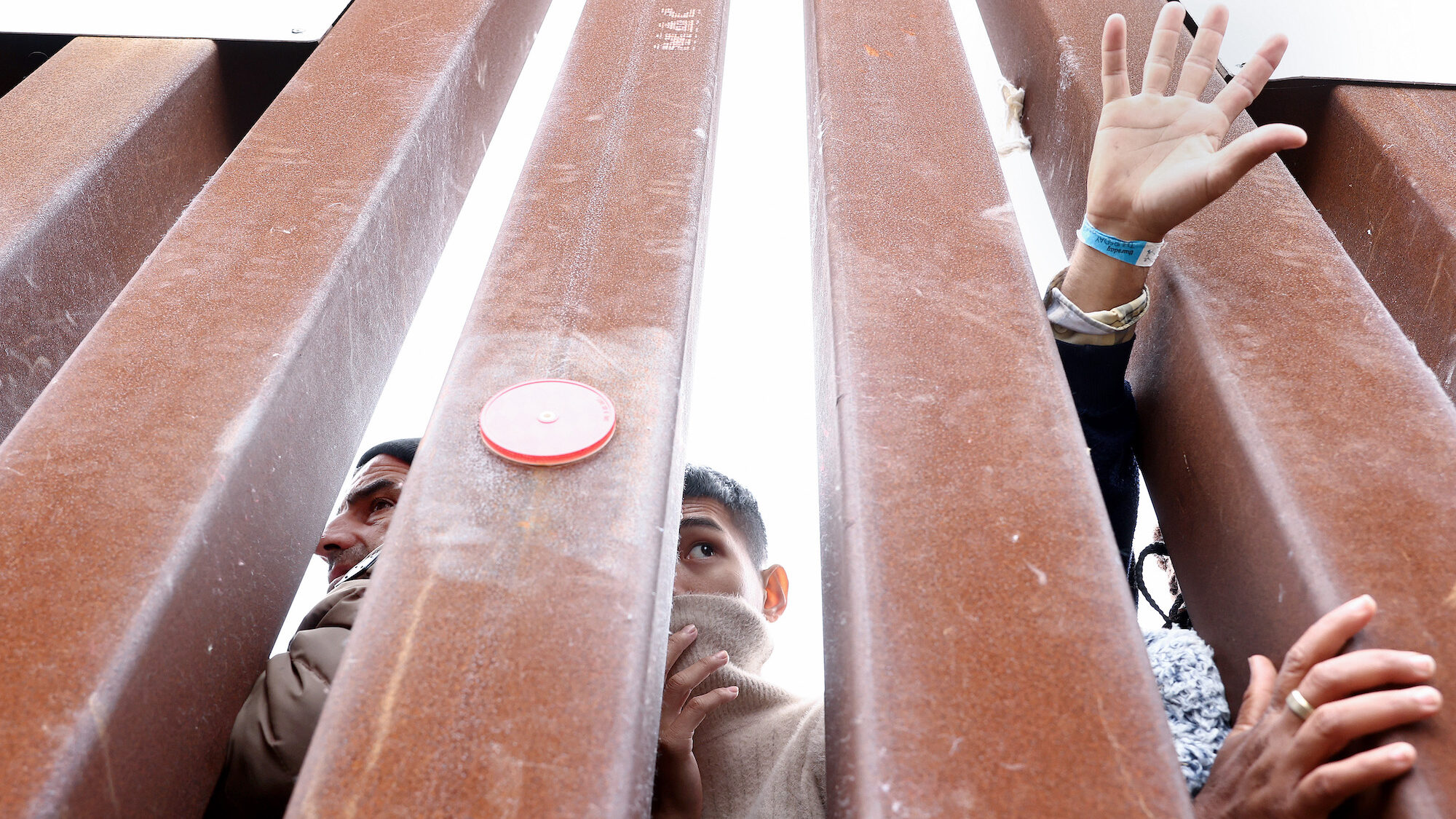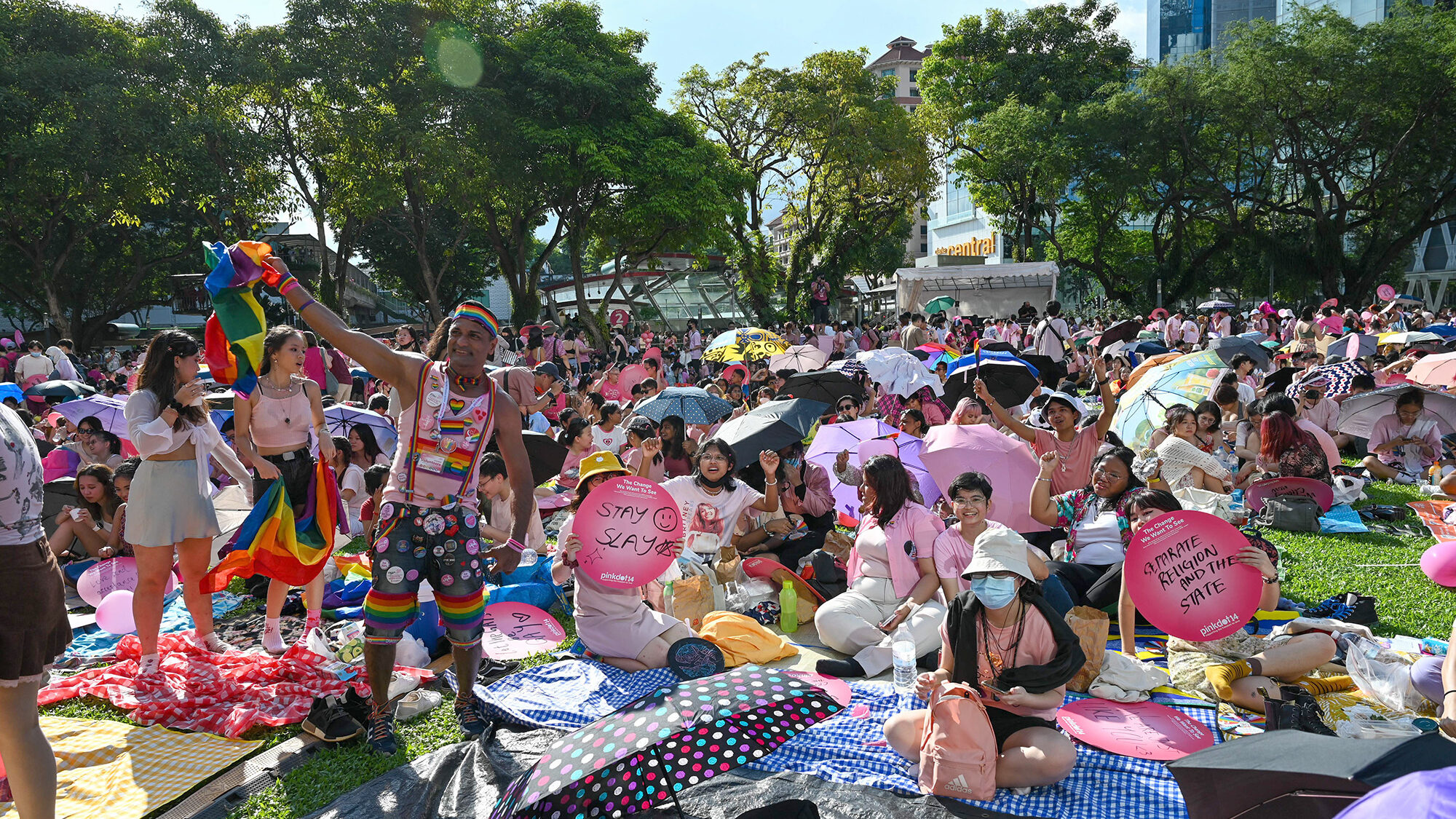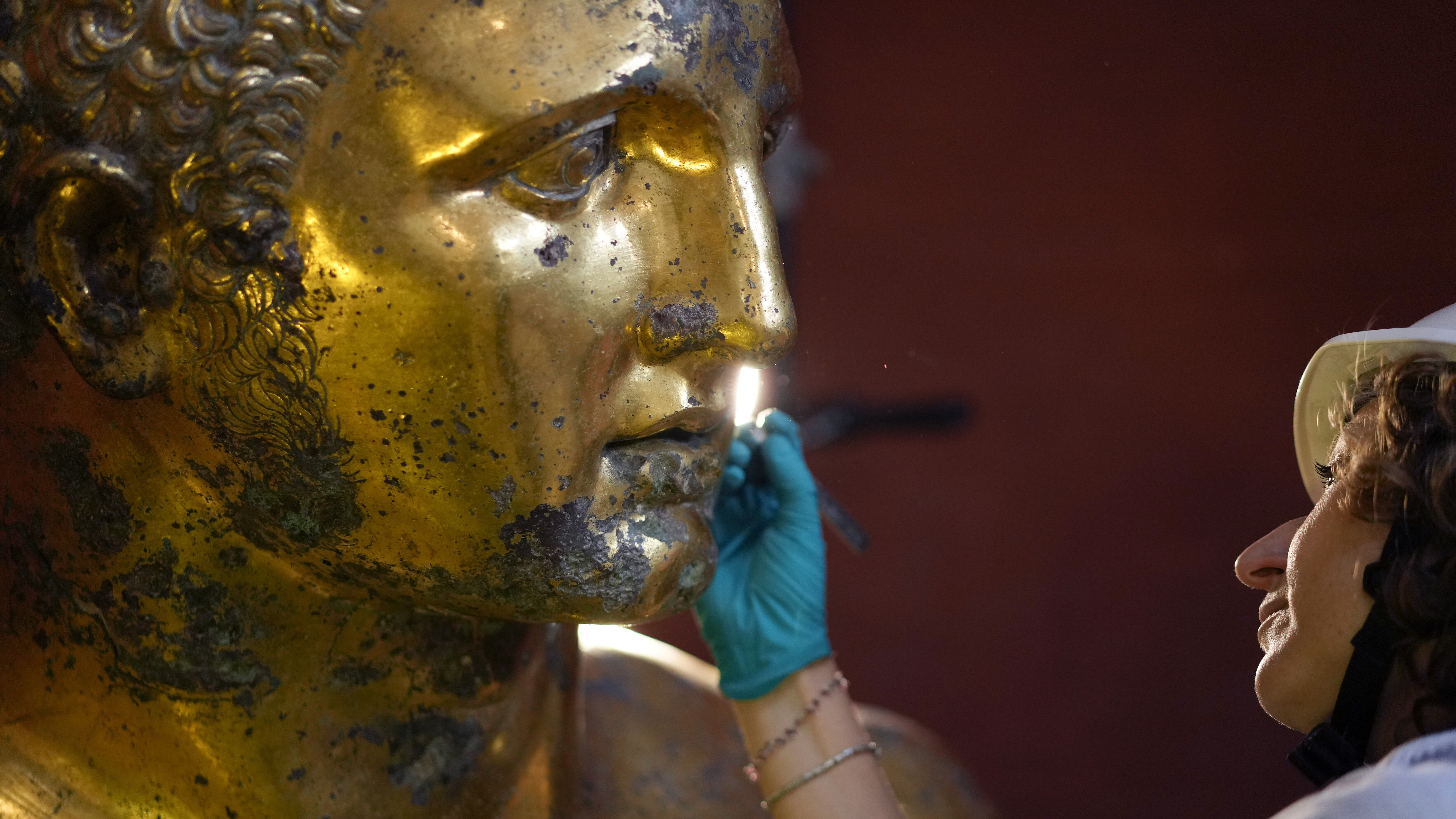CNN
Singapore just used its fake news law. Critics say it’s just what they feared
Nov 30, 2019, 11:26 AM | Updated: 11:38 am

Fake news, otherwise known as stories based on false information, have the potential to influence politics, researchers say. (Image credit: Getty images)
(Image credit: Getty images)
(CNN) — Singapore just showed the world how it plans to use a controversial new law to tackle what it deems fake news — and critics say it’s just what they expected would happen.
The government took action twice this week on two Facebook posts it claimed contained “false statements of fact,” the first uses of the law since it took effect last month.
One offending item was a Facebook post by an opposition politician that questioned the governance of the city-state’s sovereign wealth funds and some of their investment decisions. The other post was published by an Australia-based blog that claimed police had arrested a “whistleblower” who “exposed” a political candidate’s religious affiliations.
In both cases, Singapore officials ordered the accused to include the government’s rebuttal at the top of their posts. The government announcements were accompanied by screenshots of the original posts with the word “FALSE” stamped in giant letters across them.
When introducing the Protection from Online Falsehoods and Manipulation Act (POFMA) earlier this year, the Singaporean government said it was necessary to stop dangerous disinformation and hateful content. Critics said it would lead to increased censorship and official overreach in a country where freedom of expression is already under pressure. This week’s events suggest those fears may be justified.
“This is the start of the downward slide for what little remains of political and press freedom in Singapore,” said Phil Robertson, deputy Asia director at Human Rights Watch.
‘False and baseless’ assertions
In his original Facebook post, Brad Bowyer, a member of the city-state’s opposition party, criticized sovereign wealth fund Temasek for investing in what he described as a “debt ridden” restaurant company. His post also questioned investments made by GIC, Singapore’s other wealth fund.
The Singapore government called those assertions “false.” It also complained that Bowyer implied officials had influence over how the sovereign wealth funds made “commercial decisions.” Rather, the government said it helps appoint the funds’ boards and holds them accountable for their performance.
Speaking to CNN Business, Bowyer — who updated his post to comply with the official order — said he was “puzzled” by the government’s decision.
“It is within their remit but using it like this, and first time out, is not so encouraging,” he said, adding that his post received little traction when it was first published. “It will certainly raise eyebrows locally and around the world.”
In another Facebook post, Bowyer said he had no problems following the law, and said he thought it was fair to have both sides of an argument available for review.
“That does not mean that I agree with the position they are taking or admit to any false statements on my part,” he added.
The States Times Review, meanwhile, was accused of publishing falsehoods about the alleged arrest of a “whistleblower” who revealed that a political candidate connected to Singapore’s ruling party had religious affiliations, a potential source of controversy in a country with many ethnic and religious groups. The publication, a blog with about 50,000 Facebook followers that is blocked in Singapore, also claimed that “elections in Singapore are rigged.”
The Singapore government called the post “false and baseless,” adding that no one had been arrested. It also accused the States Times Review of making “scurrilous accusations” against Singapore’s prime minister and its election process.
Unlike Bowyer, the States Times Review refused to comply with the government order. Editor Alex Tan said in a subsequent Facebook post that his publication is based in Australia and he is not bound by foreign government orders. The government on Friday asked Facebook to publish the correction notice instead, and said it has “commenced investigations” against Tan for not complying with its order.
In a statement to CNN Business, a spokeswoman for Facebook said that the social media site had labeled the posts as containing false information “as required by Singaporean law.”
“As it is early days of the law coming into effect, we hope the Singapore Government’s assurances that it will not impact free expression will lead to a measured and transparent approach to implementation,” she said.
Facebook previously said it had concerns at the law’s granting of “broad powers to the Singapore executive branch to compel us to remove content they deem to be false and proactively push a government notification to users.”
Harsh punishments
A month before the law’s passage earlier this year, a man had been accused of carrying out the worst mass shooting in modern New Zealand history, and his white supremacist manifesto had been widely circulated online. As world leaders and tech companies pledged to stamp out violent extremist content online in the wake of the shooting, Singapore said its new law was necessary to protect the fabric of its diverse society.
The law makes it illegal to spread “false statements of fact” under circumstances in which that information is deemed “prejudicial” to Singapore’s security, “public safety,” “public tranquility,” or to the “friendly relations of Singapore with other countries,” among other topics.
Government ministers can decide whether to order something deemed fake news to be taken down, or require a correction to be put up alongside it. They can also order companies such as Facebook and Google — both of which opposed the bill — to block accounts or sites spreading false information.
The government can also prosecute individuals with fines of up to 50,000 Singapore dollars (about $36,000) and/or up to five years in prison. If the alleged falsehood is posted using “an inauthentic online account or controlled by a bot,” the potential fine rises to 100,000 Singapore dollars (around $73,000), and/or up to 10 years in prison.
Companies found guilty of spreading so-called fake news can face fines of up to 1 million Singapore dollars (roughly $735,000).
“If we do not protect ourselves, hostile parties will find it a simple matter to turn different groups against one another and cause disorder in our society,” Prime Minister Lee Hsien Loong said when parliament was considering the bill, echoing concerns voiced by other lawmakers that Singapore’s diverse but small society made it particularly vulnerable to misleading content spread online.
The government is now defending its use of the law. The Ministry of Finance said earlier this week that Bowyer’s post included “clearly false statements of fact, and undermines public trust in the Government.”
People can “freely read” the original post, correction and Bowyer’s additional comments and “decide for themselves what is the truth,” a spokesman for the office that oversees the act told CNN Business.
A ‘chilling effect’
Despite the government’s repeated assurances that the bill was only intended to stop the rapid spread of malicious falsehoods, critics remained unconvinced. In the most recent world rankings on press freedom by watchdog Reporters Without Borders, Singapore placed 151 out of 180 countries — among the worst positions for a country that considers itself a democracy.
Ahead of its introduction, the International Commission of Jurists, a group of prominent judges and lawyers headquartered in Switzerland, warned there was a “real risk that the law will be misused to clamp down on opinions or information critical of the government.”
Robertson, the Human Rights Watch deputy director, said this week that the bill creates a “chilling effect” that is meant to “shut down critics.”
By using a campaign against fake news to go after critics, he added, Singapore is “attempting to metamorphize government censorship into a new form.”
That kind of tactic may be gaining steam elsewhere, too. A series of anti-fake news or hate speech bills have been fast-tracked through legislatures around the world in response to specific events or media panics. But they don’t often have the scrutiny that would typically accompany such far-reaching laws.
In April, after just two days of deliberation, Australia introduced new legislation in response to the Christchurch massacre in New Zealand that gave officials the power to compel Facebook and Google to remove violent content or face massive fines and even prison time for executives of those companies. In January, officials in Fiji used a media storm over revenge porn to fast-track a law opponents described as a “Trojan horse” for censorship and control of online speech.
Speaking about his own case, Bowyer, the Singapore politician, said that “at a time when there is much turmoil around the world we need constructive conversations — not silencing and polarization which lead to very bad places indeed.”
The-CNN-Wire
™ & © 2019 Cable News Network, Inc., a WarnerMedia Company. All rights reserved.













